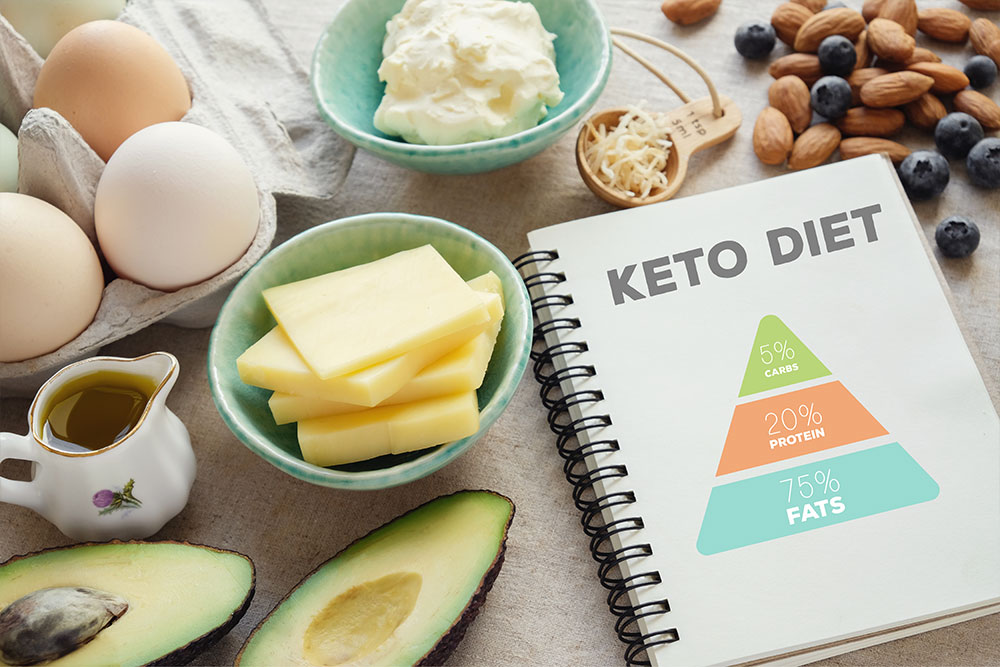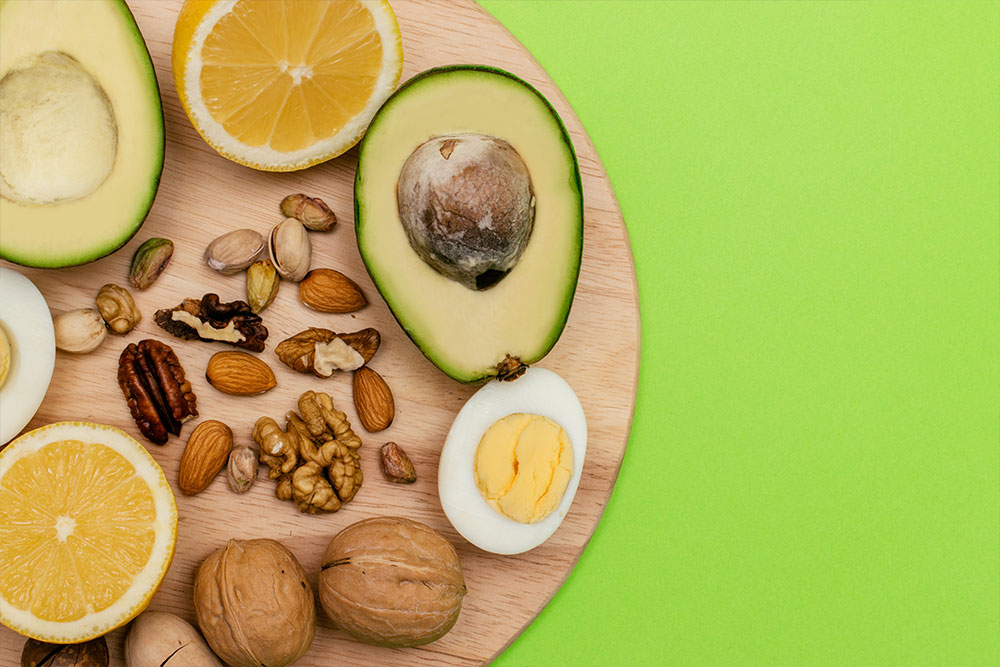In the last couple of years, there has been a rise in the popularity of keto diet as a viable option for losing weight. But what is it, and what does it entail? If you are planning to go on a keto diet, here’s everything you need to know about it.
A ketogenic or keto diet is a low carbohydrate-high fat diet. Dr Eileen Canday, head dietician and head of department, nutrition and dietetics, Sir HN Reliance Foundation Hospital, states that it involves drastically reducing carbohydrate intake and replacing it with fat. This reduction in carbohydrates puts your body into a metabolic state called ketosis, where your body uses fat for fuel.

Benefits
Some benefits of keto diet, shared by the health experts are as follows:
1. It helps reduce your appetite, as you are cutting carbs from your diet and including more protein and fats, which in turn leads to lower calorie consumption. Hence, if you are looking to shed those extra kilos (hello, holiday weight!), you can give this a shot.
2. Since your body is using stored fats for energy, your abdominal cavity loses excess fat, which could have otherwise caused metabolic problems, such as slow metabolism, that lead to weight management issues.
3. It reduces inflammation through NF-kappaB. NF-kappaB, which is a protein complex that controls the transcription of the DNA. It helps the body generate more energy and decreases reactive oxygen, which are free radicals that cause inflammation and are the root cause of all diseases.

4. Since low-carb diets include high levels of fat, they increase the levels of your “good” cholesterol. The higher the level of good cholesterol, the lower the chances of heart diseases.
5. A ketogenic diet may help reduce symptoms of Alzheimer’s disease and slow its progression. This diet reduces amyloid in the brain, a sticky protein that can cause a major inflammation, and is found mostly in Alzheimer patients, and increases glutathione production, which is a mother antioxidant that's important and can stimulate the growth of the mitochondria (power house of energy).
6. This diet is beneficial for people with Epilepsy, as pointed out by Karishma Chawla, a nutritionist and lifestyle educator based in Mumbai, who shares that this diet is used in intractable seizures in children and adolescence. One can reduce the amount of seizures by using ketogenic diet. “The mechanism of action is really unknown, but it's attributed to the ketone bodies, glycolysis and mitochondrial metabolism.”
Drawbacks
On the other hand, the drawbacks are as follows:
1. During diet transition, one may experience side effects from significantly cutting carbs, sometimes called the “Keto Flu”. Hunger, headaches, nausea, fatigue, irritability, constipation and brain “fog” may last days. Sleep and hydration will help, but give it a few days before you decide on the way forward.
2. Keto diet doesn’t is also extremely low in fruits, as they can increase the overall consumption of carbohydrates which can further hinder the body from entering into ketosis. Although you can consume fruits such as raspberries, peaches, and strawberries, their consumption is limited, based on your requirements.
3. It also is low on vegetables, without which people on the diet can miss out on fibre, vitamins like vitamin A, vitamin C, vitamin K and minerals like sodium, potassium, magnesium, phosphorus, iron, zinc. You may be allowed to have vegetables such as tomato, broccoli, eggplant, cauliflower, or spinach, based on your dietary requirements.

Owing to its various health benefits, Chawla recommends that individuals with epilepsy, inflammation, cancer and even weight concerns can try this diet plan.
However, she warns against putting somebody on a ketogenic diet if they have bad gut permeability or digestive concerns, such as sensitivity to every food or a leaky gut, food allergies or gut pain, as it is a strict diet. It would be wise clean up their gut first. Experimenting with a low carbohydrate diet plan and identifying their medical conditions is one way to go about it. Dr Canday further elaborates that it is not advisable to follow a ketogenic diet especially in people with chronic diseases like diabetes, blood pressure, kidney diseases. The diet can also lead to “yo-yo” dieting, because people have difficulty staying on a restrictive diet permanently. Going on and off a diet and frequent weight fluctuations increases the risk of mortality.

For those with dietary restrictions, Dr Canday explains that the dietician can accommodate the food alternatives to meet nutritional requirement depending on the type of restrictions. Nutritional supplements can also be considered if dietary restrictions do to not permit to meet nutritional requirements through food in such cases. Chawla mentions since the diet is high in fat and requires adequate protein, alternative to dairy would be vegan protein and dairy free fats such as olive oil, coconut oil, almond flour, flaxseed flour, coconut milk, almond milk, avocados, nuts and seeds. It is very important to ensure that you are well hydrated.
However, everybody is different so it is advisable to consult a nutritionist, who will chart out a diet plan based on your needs.